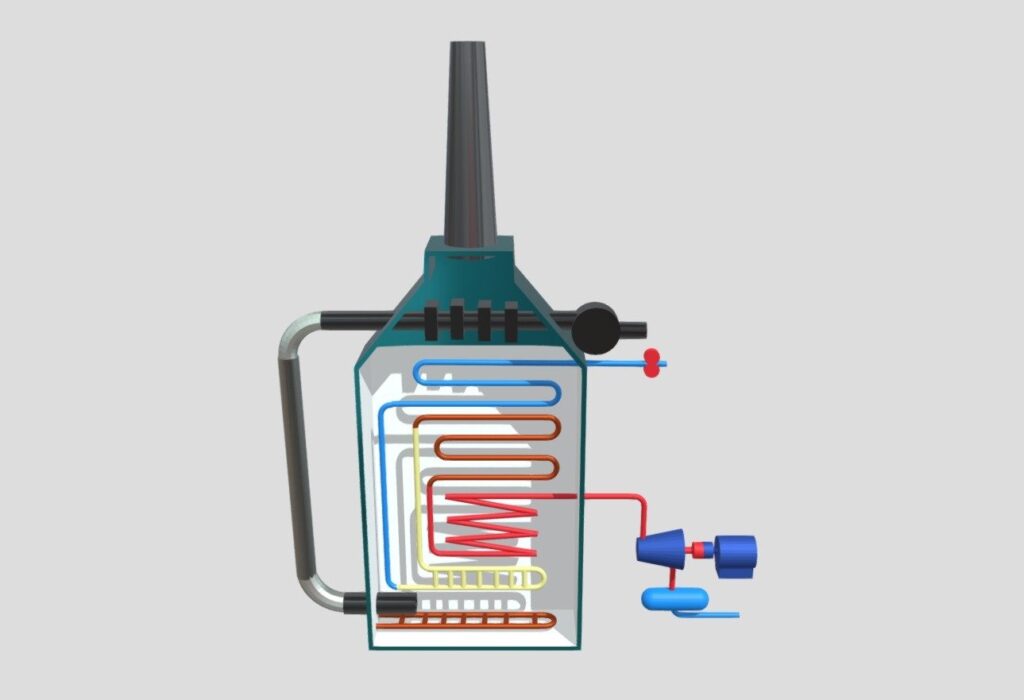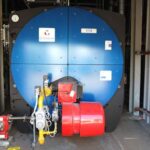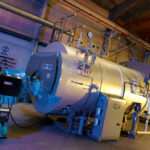The presence of steam bubbles in contact with the surface of tubes seriously impairs heat transmission from the flue gases to water. By rising the boiler pressure to the critical pressure of steam (225 kgf/sq.cm.), this difficulty is overcome, as suggested by Mark Benson in 1922. At the critical pressure water and steam have the same density and no bubbles are formed.
The first modern high pressure drumless boiler developed by benson was put into operation in 1927 in west Germany power station.
Working principle of Benson Boiler:
This boiler has a unique characteristic of absence of steam separating drum. The entire process of heating, steam generation and superheating is done in a single continuous tube.

Economiser
The feed water by means of the feed pump is circulated through the economiser tubes. Hot flue gases pass over the economiser tubes and the feed water is preheated.
Radiant evaporator
The feed water from the economiser flows into the radiant evaporator with radiant parallel tube sections. The radiant evaporator receives heat from the burning fuel through radiation process and majority of water is converted into steam in it.
Convection Evaporator
The remaining water is evaporated in the convection evaporator, absorbing the heat from the hot gases by convection. Thus the saturated high pressure steam at a pressure of 210 kg/sq.cm is produced.
Convection superheater
The saturated steam is now passed through the convection superheater where the saturated steam os superheated to 650’C. The radiant evaporator, the convection evaporater and the convection superheater are all arranged in the path of the flue gases.
Steam outlet
The superheated steam is supplied to the steam turbine through the steam outlet.
Capacity
Capacity of benson boiler is about 150 tonnes/hr at a pressure of 210 kgf/sq.cm. and at a temperature of 650’C. (Efficiency may be improved by running the boiler at a pressure slightly lower than the critical pressure).
Salient features of Benson Boiler
1. As there are no drums, the total weight of benson bolier is 20% less than other boilers. This also reduces the cost of the boilers.
2. As no drums are required, the transfer of the benson parts is easy. Majority of the parts may be carried to the site without pre-assembly.
3. Since no drum is used, this is an once-through boiler and the feed water entering at one end is discharged as superheated steam at the other end.
4. Circulating pump and downcomers are dispensed with.


